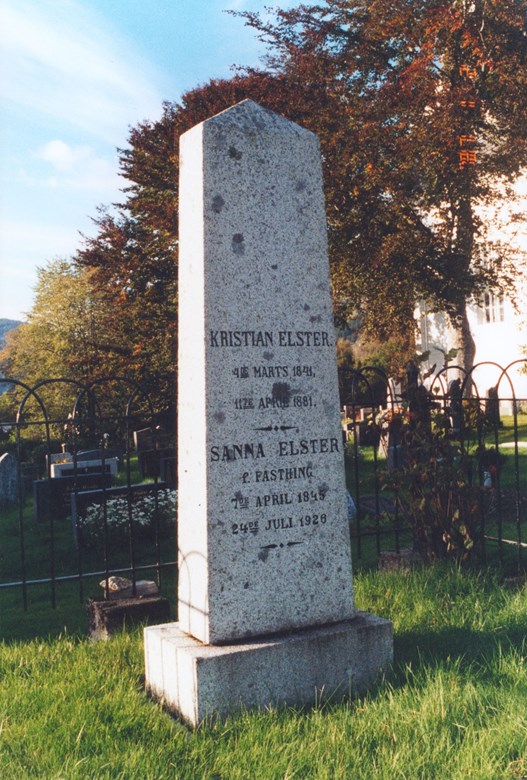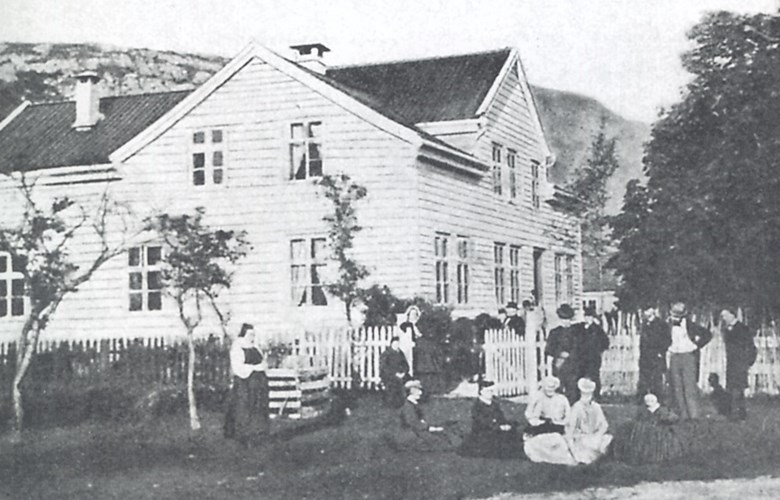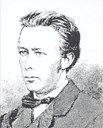Family and adolescence
Kristian Mandrup Elster was born on 4 March, 1841 in Namdalen. His parents were Christen Chr. Elster (1804-1891) and Elen Sophie Alstrup (1811-1889). When he was twelve, the family Elster moved to Førde, where his father took office as bailiff. Førde became the place which the author regarded as his home. In his writing he found motifs in places around Førde. Yet he lived here only a short time. At fifteen he was sent to school in Kristiania (Oslo). In 1867, he went to Germany to be educated as a forester. From 1869 to 1873, he lived in Kristiania.
In 1874, he married Sanna Fasting (1845-1926), vicar's daughter from Førde, and a sister of another author whose background was in the Sunnfjord district, O. W. Fasting. Elster was from 1873 until his death a forester in Trøndelag. He died of pneumonia on 11 April, 1881 in Trondheim. His son, the author Kristian Elster the Younger (1881-1947), wrote with clear parallels to his father.
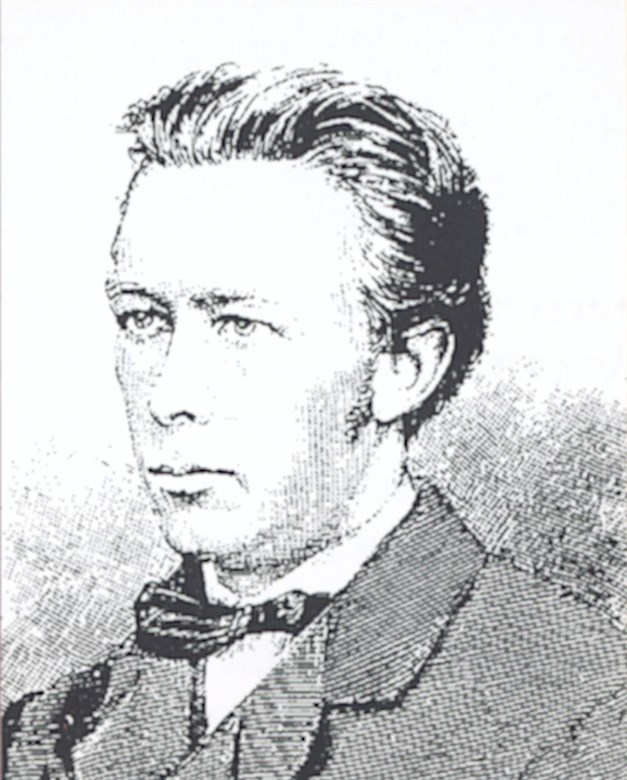
Writer
As early as in 1860, a play by Elster was accepted at Christiania Theater, but he withdrew it. Another one, "Audun Hugleikson og Eystein Meyla", was performed in 1863, but was a failure. Some poems and short stories of his were published. In 1869, he settled in Kristiania as a writer of book reviews and other cultural themes, and he became an advocate of realism. His authorship was influenced by his early translation of Tolstoy's novel "Ivan Turgenjev", which he regarded as a literary ideal, together with German folklore writers.
Writings
His writing is marked by a conflict between romanticism and realism. From his work should be singled out his short story "En Korsgang" (1871). The story is based on an authentic event in the district, where the woman on an isolated farm finds that her son is a murderer, and her dilemma upon deciding whether or not to report him to the police. Two novels are "Solskyer" (1877) and "Tora Trondal" (1879). The latter is a social novel which deals with the contrasts between the traditional farm culture and the more continental orientation of the upper class officials¿ social environment. The novels "En fremmed Fugl" (1881) and "Farlige Folk" (1881), have similar motifs. They are so-called social realism novels, the latter receiving much attention in Scandinavia.
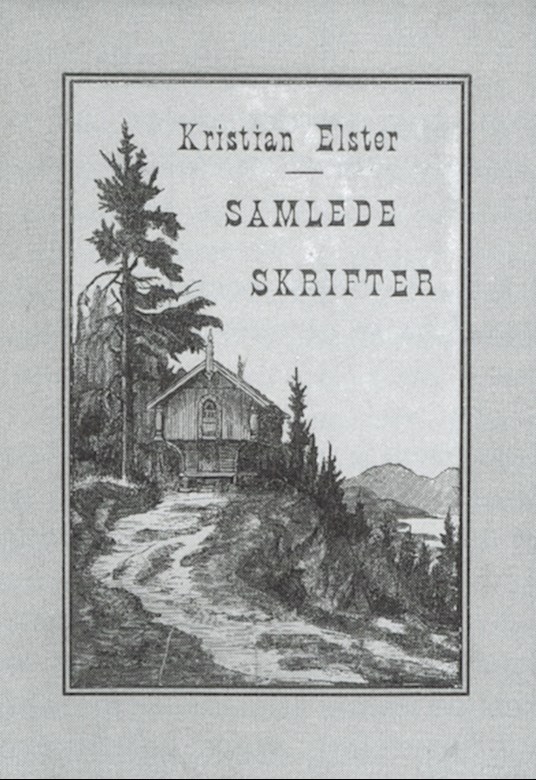
On the "..sendrægstigste Folk.. (the slowest of people)"
Elster was preoccupied with cultural conflicts, which he examined most broadly in the treatise "On the contrast between the western and the eastern parts of Norway" (1872). Here he describes the differences in living conditions and economy, and the effects on people's temperament and way of thinking. But there are also differences between people from Sunnfjord and people from Sogn. The former he finds "perhaps the most melancholy, most tenacious, and slowest people in the country". Across the mountain, on the other hand, in Sogn, there lived a far quicker race, in all respects. Thus Elster early did his part in creating this myth about the two "races" the "sunnfjording" and the "sogning". This myth was later expanded, perhaps pursued for more than its worth, by later writers, for example by his brother-in-law O. W. Fasting in his stories.
